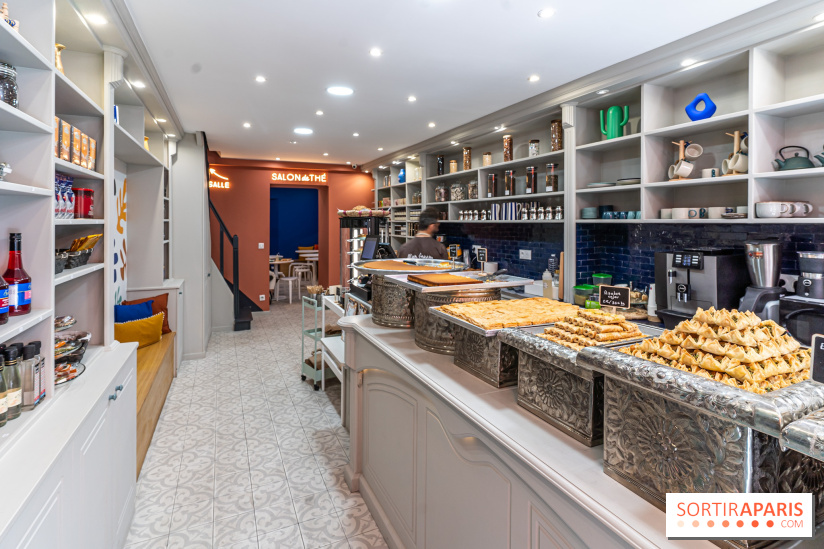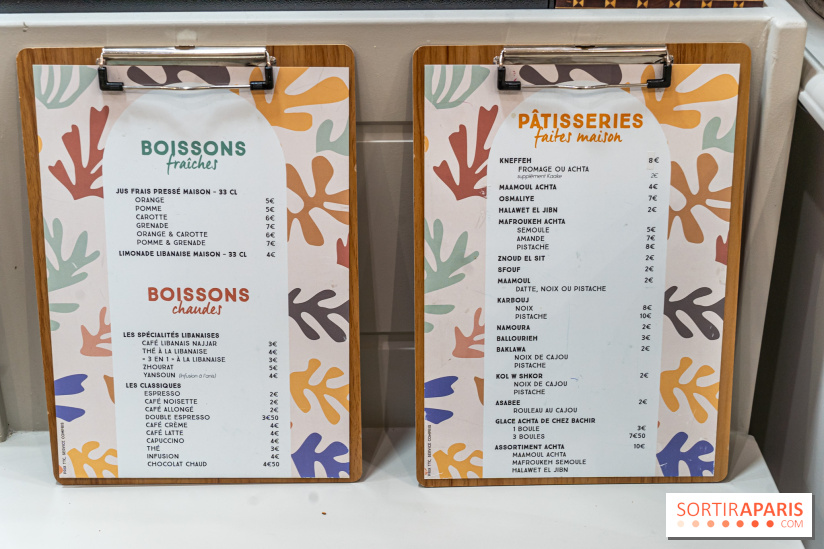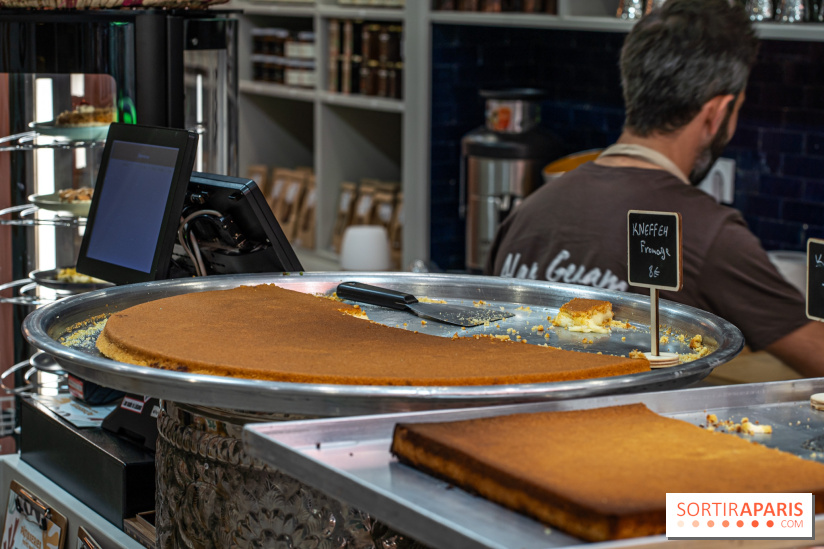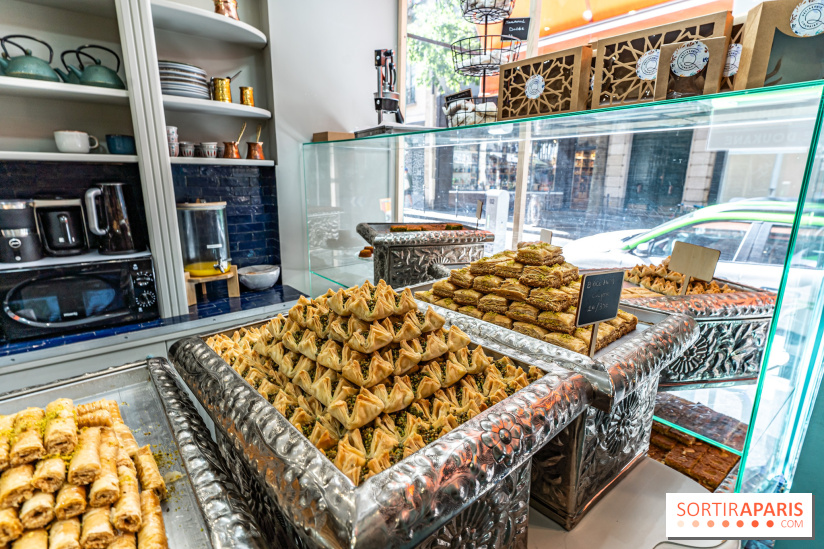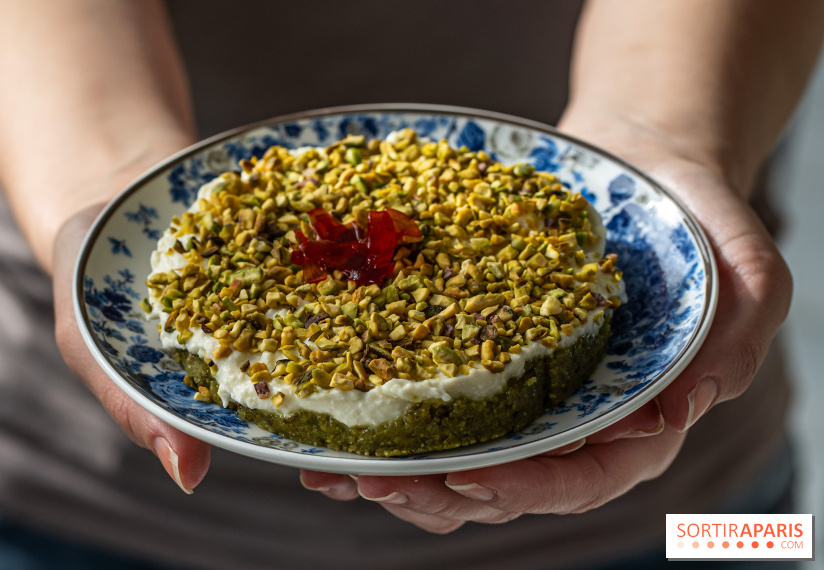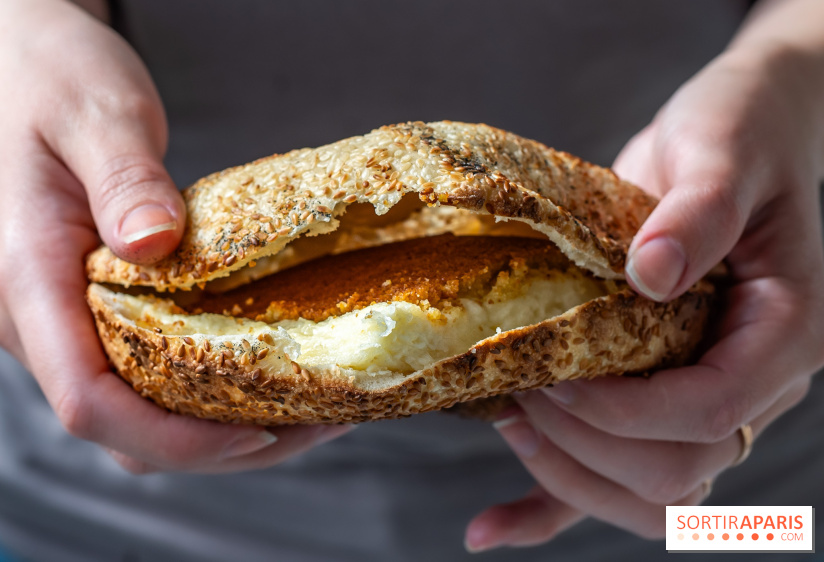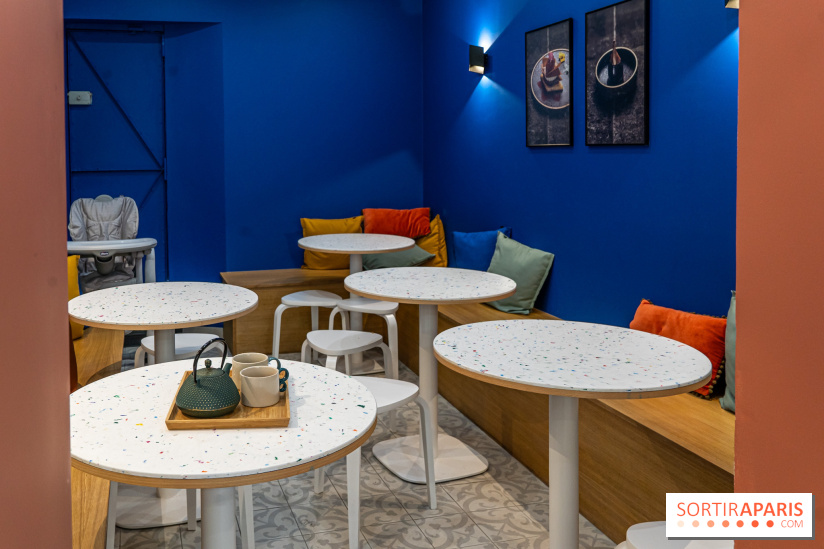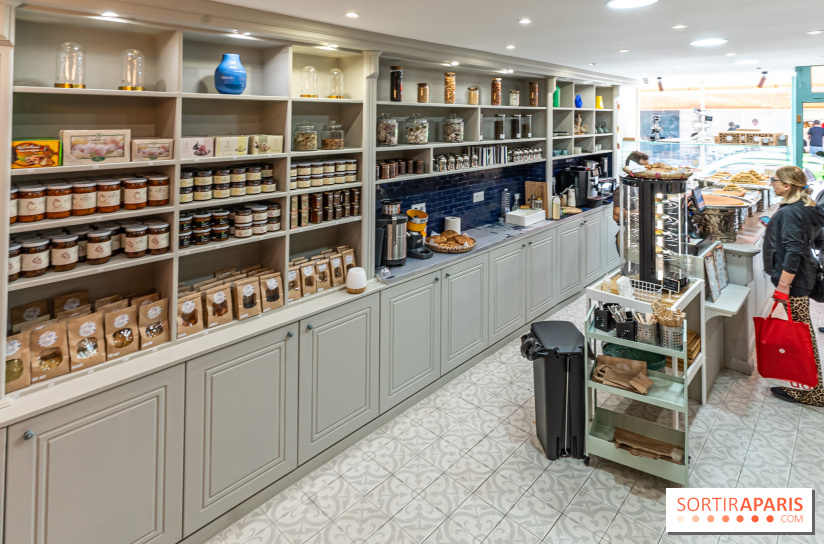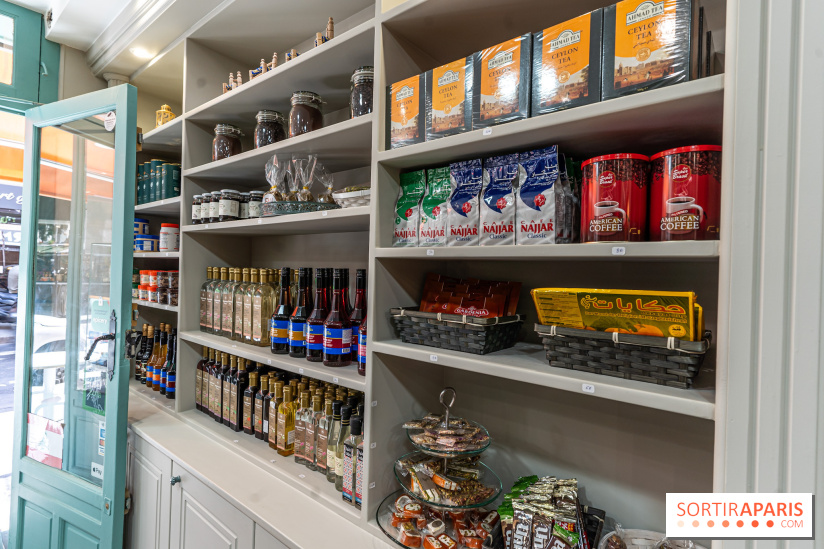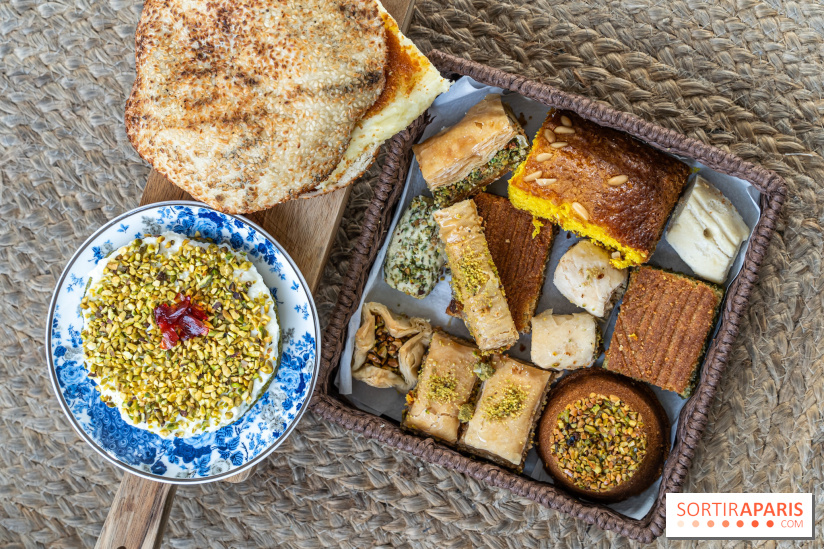Authentic Lebanese flavors come to the heart of Paris with Qasti Pâtisserie and Salon de Thé by Alan Geaam, the new haunt for lovers of oriental sweets. Since early September 2023, this new address offers a sweet immersion in Lebanese cuisine, orchestrated by the renowned Franco-Lebanese chef.
Alan Geaam, the chef already at the helm of the Michelin-starred Alan Geaam restaurant, Qasti Bistrot, Qasti Shawarma, Faurn and the Doukane grocery store, is constantly innovating and opening new gourmet spots that showcase the flavours of his native Lebanon.
Based on the observation that there were few, if any, quality artisanal Lebanese patisseries in Paris, Alan Geaam enlisted the services of a true Lebanese pastry chef to open a patisserie-tea room that smells of orange blossom and rosewater.
On-site or takeaway menu:
The Lebanese pastries on offer are a veritable showcase of flavors, blending generosity and tradition. Among the delights on offer:
With each bite, you discover a part of the richness of Lebanese gastronomy. Tea time is enhanced by premium teas, freshly squeezed juices and the inevitable finely-ground, long-roasted Lebanese coffee. For a complete experience, try the Zhourat infusion with dried flowers, the house lemonade with lemon and orange blossom, or the famous Lebanese coffee with cardamom.
The warm, spacious space boasts a large pastry counter and walls featuring a fine range of groceries. A small tea room at the back, seating around ten, is available for tasting on the spot.
On the grocery side, you'll find jams, dried fruit, pastry items, teas and coffees, molasses, rosewater and orange blossom. A range of selected products that extend the gustatory journey beyond pastry.
With individual pastries priced at around €2 and a Mafroukeh plate between €7 and €8, Qasti Pâtisserie is an affordable invitation to a grand voyage of flavors. Open daily from 10am to 10pm, and until 11pm on Fridays and Saturdays, it's one of those places that sublimates tradition and cultivates authenticity.
In terms of flavors, Lebanese pastries, and more broadly those of the Middle East, give pride of place to dried fruit, rose and orange blossom water, achta (milk flower) and semolina. A lesser-known aspect is that some of them, such as halawet and knafeh, contain cheese. Eggs are practically absent from these recipes, a characteristic shared with sweets from the Maghreb and the Middle East.
Lebanese, Moroccan, Syrian and Algerian desserts are sometimes grouped together under the heading of "oriental pastries". However, even if recipes such as baklava and zlabia can be found in several countries, this designation is not entirely accurate. If you take a closer look, you'll be able to tell the difference between Maghreb and Middle Eastern pastries. Maghrebian pastries, for example, are often made with almond and honey, while in the Middle East, pistachio, sugar syrup and clarified butter are more commonly used. At Qasti Pâtisserie, for example, you won't find gazelle horns, but Maamoul, (date-filled shortbread), Sfouf (a semolina cake with turmeric), or Osmaliye made with angel hair and achta (milk flower), revealing the richness and uniqueness of Lebanese pastries in a welcoming, authentic environment.
Qasti Pâtisserie libanaises is more than just a gourmet address, it's an ode to Lebanese tradition, a place for sharing and discovery that we invite you to discover for a snack or a sweet treat to share with family and friends.
Dates and Opening Time
Starts September 29, 2023
Location
Qasti Pâtisserie Libanaire
212 Rue Saint-Martin
75003 Paris 3
Recommended age
For all
Official website
www.alangeaam.fr
More information
Open daily from 10am to 10pm and until 11pm on Fridays and Saturdays.
